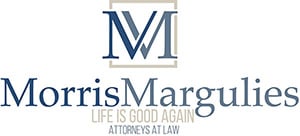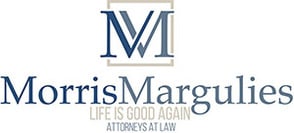
The attorneys at Laura Margulies & Associates, LLC have successfully represented many Federal employees and contractors in bankruptcy cases due to our location in the Washington, D.C. area. Most Federal employees or contractors who hold current security clearances are very concerned about the impact that filing for bankruptcy will have on their ability to keep their job and maintain their security clearance. With furloughs coming soon, and the current sequester, many Federal workers will have their salaries reduced, and may be forced into bankruptcy as a result.
The good news is that filing for bankruptcy will most likely not cost you your job or your security clearance. In fact, you may actually be considered less of a security risk after you have filed for bankruptcy. Since you will have either discharged your debts or arranged for a court-ordered repayment plan, you are not vulnerable to blackmail based upon your debts. And you have showed responsibility in taking charge of your financial situation.
The most important thing to keep in mind to maintain your security clearance is: communication. You simply must communicate with the appropriate contact person in the personnel security office of your agency to keep them informed about your intentions of filing for bankruptcy and the progress of your bankruptcy case. The worst thing you can do is catch your agency off guard. The agency will find out, and it is better that you inform them rather than having them come to you. Most Federal workers are surprised about how their agency is able to work with them to resolve any concerns the agency may have with their bankruptcy. You will likely be complemented on your forthrightness in coming forward early in the process. And you will likely find out that you are not the only one in your agency filing for bankruptcy.
When filing for a Chapter 13 bankruptcy, once a repayment plan is approved by the court, the Trustee will typically take the plan payments directly out of your paycheck by a wage order. You may be eligible to waive the wage withholding order if you are concerned that you could lose the opportunity for a promotion or other serious consequences if the payments to the trustee are taken directly from your paycheck. If you have established a timely payment history to the Trustee and have demonstrated good cause, the court can waive the requirement to have a wage order in place and you can continue to pay the Trustee directly by check. This can avoid the embarrassment of having the human resources department learn the details of exactly how much you are paying every month.
Keep in mind that under 11 U.S.C. § 525, it is illegal for public or private employers to discriminate against a bankruptcy debtor solely based upon the bankruptcy or upon the insolvency of the debtor before or during the bankruptcy case. Section 525 stemmed from the U.S. Supreme Court case of Perez v. Campbell, 402 U.S. 637 (1971) in which the Court held that a state could not suspend the driver’s license of a person based upon a judgment that was discharged in bankruptcy because to do so violated the concept of the “fresh start” provided by bankruptcy.
So, you are not alone, and many Federal workers have unfortunately had to travel this same road. Our firm is sensitive to these issues, and can help you navigate the process successfully, as we have done for many clients in the Washington, D.C. area.

